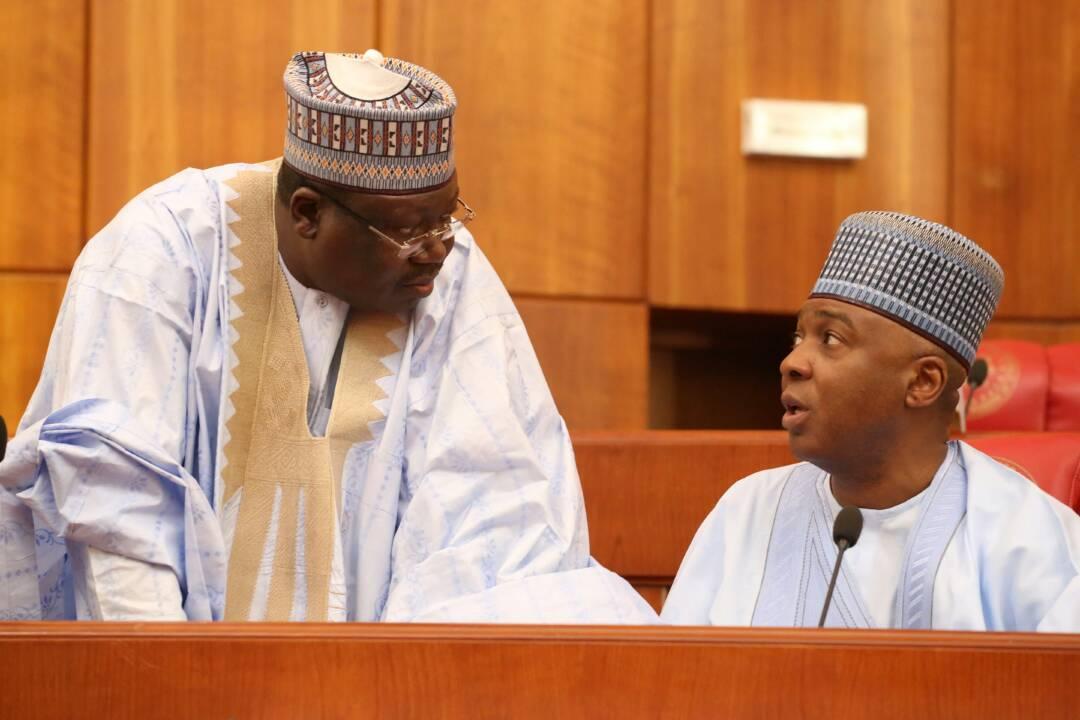
He said the aim of the Open Week is to improve public confidence in democratic institutions, particularly the legislature and to broaden public understanding of legislative functions and processes of the National Assembly.
He made this known while speaking on the state of preparedness of the National Assembly to host the week. He said all is now set for the maiden edition of the Open Week.
According to Lawan, public engagement has become a key role for parliaments.
This is shown in the reinforcement of a wide range of types of activity, from expanding the scope of visits to parliament, developing educational resources about the institution, to introducing out-facing programmes actively seeking to engage communities and stakeholders with the work of parliament.
He said the three key principles of public engagement of the Nigerian National Assembly are to inform, to involve the public in its work, and to empower the public to help shape and set the agenda.
“Transparency strengthens democracy, promotes efficiency and effectiveness in governance.
Despite these efforts, a lot more can be done by the National Assembly to improve public confidence in the institution of the legislature and encourage public engagement because very few citizens understand the nature of the work of the National Assembly and the breadth of its activities.
Public perception has largely been shaped by what the media covers, particularly relating to plenary. The Open Week will open NASS to the public and the inner workings of the legislature.
“Parliamentary openness is meant to enable citizens to be informed about the work of parliament, empower citizens to engage in the legislative process, allow citizens to hold parliamentarians to account and ensure that citizens’ interests are well represented.”
He explained that since there are no fora that bring the general public close to legislators, this week long event is meant to bridge that gap.
“It will serve as an avenue for interaction between legislators and key stakeholders”, he said.
On what the week is expected to achieve, he said it would bridge the gap and address the perennial negative public perception of legislators and the institution of the legislature by bringing closer the various publics and the legislature.
“It will improve the image of NASS and eliminate some of the myths and assumptions about the National Assembly.
The week will serve as a platform to showcase the work of NASS to a broader audience, raise awareness of NASS initiatives, and generate momentum towards legislative openness,” he said.
Similarly, the Director General, National Institute for Legislative and Democratic Studies (NILDS), Prof, Ladi Hamalai said the interaction will facilitate good interaction between legislators and key stakeholders in a series of events including interactive sessions, exhibitions, tours as well as questions and answer sessions over the 4-day period to raise awareness on NASS initiatives and activities.
“Some of the activities planned for the week also include several interactive sessions for different days as follows: Interactive session with the Executive arm of Government on The Economic Recovery and Growth Plan (ERGP); interaction with the Judiciary on pre-and post-elections adjudication and constitutional
Separation of powers; interaction with State Assemblies on constitutional separation of powers; interaction with trade unions on economic growth and industrial relations; interaction with traditional rulers and pressure groups and interaction with civil society organisations on accountability and service delivery in governance.
And interaction with women groups, youth groups and student bodies among others,” the DG said.
According to her, the daily exhibitions, which have been planned for committees of the National Assembly will showcase their outputs and interface with stakeholders and the general public; and that the Senate and House Committees have been put together into clusters allowing for ease of interaction.
The major objective of the week is to broaden public understanding of legislative functions and processes as well interface with legislators and staff; to highlight the good work being done by the National Assembly to advance legislative openness; and to create an avenue for interaction between legislators and key stakeholders (legislative monitoring civil society organisations, media, and constituents) and to bridge the gap and address the perennial negative public perception of legislators among others.
The participants include Committees of the National Assembly, MDAs, the Judiciary and State Assemblies and CSOs and NGOs.
Others are Members of the private sector, media groups and organisations, researchers/academia, traditional representatives, religious leaders, development partners, trade unions and pressure groups.
Others are socio-cultural organisations, pressure groups, students and students groups, Nigerians in the Diaspora and lobby groups.
She said she hopes that this timely interaction will be an opportunity to share experiences and interact with other stakeholders and a chance to showcase the work of all participants to a wider audience.
[ad unit=2]



